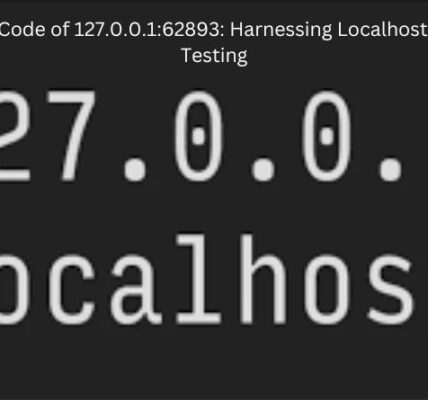Public records are an essential component of the legal and administrative infrastructure of any country, providing information about citizens, businesses, property, and more. SumoSearch is a popular online tool designed to streamline access to public records in the United States, offering an easy and efficient way to search a variety of data sources. This guide provides a step-by-step walkthrough of how to utilize SumoSearch effectively to access public records, understand its capabilities, and leverage it for personal, business, or legal purposes.
What is SumoSearch?
SumoSearch is an online platform that aggregates public records from a wide range of sources, making it easy for users to access and search for information in one central location. Public records in the U.S. include vital records, property records, criminal records, and business filings, all of which can be located using SumoSearch. The service stands out because it allows users to quickly find relevant data from multiple databases, saving time and effort compared to visiting individual government or institutional websites.
SumoSearch covers a variety of records including:
- Criminal history reports
- Property ownership records
- Marriage and divorce records
- Business registrations
- Bankruptcy and lien information
- Court cases and judgments
- Vital statistics (births, deaths, etc.)
While the availability of data may vary by state or local government, SumoSearch provides an extensive range of records with reliable search functionalities.
Why Use SumoSearch for Public Records?
Searching for public records can often be a cumbersome process, as information is typically scattered across numerous platforms and databases. In many cases, accessing these records requires visiting government websites that may have non-intuitive interfaces or require time-consuming authentication processes. SumoSearch simplifies the search process by centralizing access to these records in one place.
Some key benefits of using SumoSearch include:
- Efficiency: By aggregating public records from multiple sources, SumoSearch saves users from having to perform multiple searches on different websites.
- Ease of Use: The platform’s user-friendly interface is designed to make searching easy, even for individuals with little technical knowledge.
- Comprehensive Data: SumoSearch pulls data from an extensive list of public and government databases, offering a wide range of records to meet diverse needs.
- Affordable Access: For users who need frequent access to public records, SumoSearch offers various pricing options, making it more affordable than some other paid services.
Whether you are conducting a background check on a potential employee, researching property ownership, or verifying business details, SumoSearch provides an invaluable resource for accessing public data quickly and efficiently.
Getting Started with SumoSearch
Accessing public records through SumoSearch is a straightforward process. Below is a step-by-step guide on how to use the platform to locate public records.
Step 1: Visit the SumoSearch Website
The first step is to navigate to the SumoSearch website. The home page is designed to be simple and user-friendly, with a search bar prominently displayed. From here, you can start your search by entering the type of record you’re looking for, along with any relevant information such as a name, address, or phone number.
Step 2: Choose the Type of Record to Search
SumoSearch allows you to choose the type of record you want to search. This can be particularly useful if you are looking for a specific kind of data, such as property records, criminal records, or court cases. Each record type has a different database, so selecting the right one can help narrow down your search results.
For example, if you’re looking for criminal records, select the criminal records category. This will filter out unrelated data, making the search more efficient. Likewise, if you’re investigating property ownership, select the property records option.
Step 3: Enter Relevant Search Criteria
Once you’ve selected the type of record to search, you will need to enter specific information related to your query. Depending on the type of search, this could include:
- Names: The name of the individual you are searching for.
- Addresses: To find property records, enter an address.
- Phone numbers: Some searches may allow you to look up information using a phone number.
- Dates: For court cases or vital records, you may need to enter specific dates related to the event.
The more detailed your search criteria, the more refined your results will be.
Step 4: Review the Search Results
After entering your search criteria and initiating the search, SumoSearch will generate a list of results. These results can be extensive depending on the search parameters, but SumoSearch offers filters and sorting options to help manage the volume of information. For instance, results can be filtered by date or type of record, allowing you to quickly locate the most relevant data.
At this stage, you can also choose to download the records you need or save them for future reference.
Step 5: Access Detailed Records
Once you have identified the relevant search result, click on the individual record to access more detailed information. Depending on the type of record, this could include a wealth of data:
- Criminal records: Includes charges, convictions, and sentencing details.
- Property records: Lists the ownership history, property value, and any liens or mortgages.
- Court cases: Provides case summaries, court judgments, and attorney information.
SumoSearch makes it easy to view and download these records for further review or legal use.
Step 6: Verify and Use the Data
Before using the data obtained from SumoSearch for any official purpose, it’s essential to verify the information’s accuracy. While SumoSearch strives to provide accurate and up-to-date information, it is always advisable to cross-check records with the official source, especially if the data will be used in a legal, business, or government capacity.
Verification can typically be done by visiting the local or state government website associated with the record type, or by contacting the issuing agency directly.
Privacy Considerations and Legal Compliance
When using SumoSearch, it’s important to be aware of privacy and legal implications. Public records are generally accessible to the public, but there are restrictions on how this data can be used. For instance, the Fair Credit Reporting Act (FCRA) limits the use of public records in making decisions related to employment, credit, and housing. It’s crucial to ensure that any use of public data complies with applicable laws to avoid potential legal issues.
SumoSearch does not provide consumer reports and should not be used for purposes that violate FCRA regulations. Users should also be cautious of the privacy rights of individuals and refrain from misusing personal information.
When to Use Alternative Search Tools
Although SumoSearch provides a broad range of public records, there may be instances where alternative search methods are more appropriate. For example:
- State-Specific Records: If you’re looking for records in states where SumoSearch’s coverage is limited, visiting state-specific government websites might yield better results.
- In-Depth Legal Research: For complex legal cases, a more specialized legal database like LexisNexis or PACER might be necessary.
SumoSearch is an excellent starting point for general public record searches, but users should be aware of its limitations and consider additional tools when needed.
Conclusion
SumoSearch offers a convenient and powerful way to access public records across a wide range of categories. Its easy-to-use interface, extensive data coverage, and time-saving functionality make it a popular choice for individuals and businesses alike. By following the step-by-step guide outlined in this article, users can quickly learn how to navigate the platform, refine their searches, and retrieve the public records they need.
Whether you’re conducting a background check, verifying property ownership, or researching court cases, SumoSearch provides an invaluable resource that simplifies and accelerates the process of accessing public information. Just remember to verify the data you retrieve, respect privacy laws, and stay compliant with any legal restrictions surrounding the use of public records.
Read also: check













